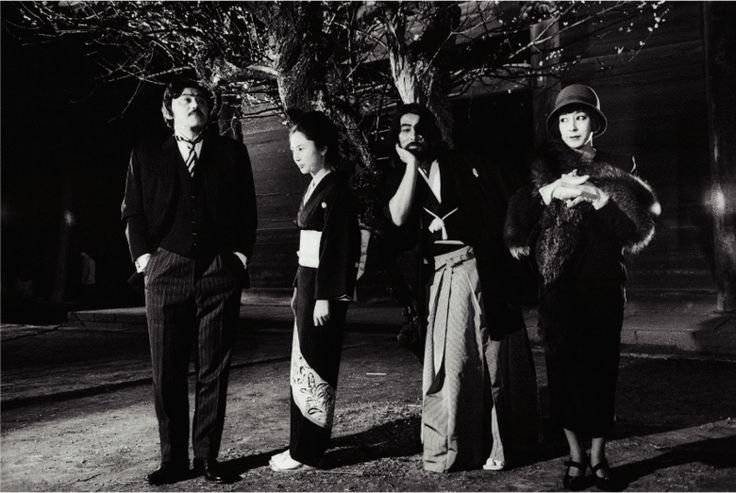Star and Shadow Cinema Presents
Zigeunerweisen
Seijun Suzuki – Japanese New Wave Yakuza and 1960s Surreal CoolDir: Seijun Suzuki, (1980), Japan, 144 min, Bluray, Cert: 15
-
Sun 24 March 2019 // 19:30
/ Cinema
Tickets: £7/5
In the multiple Japanese Academy Award-winning Zigeunerweisen (1980), two intellectuals and former colleagues from military academy involve their wives in a series of dangerous sexual games. This is the opener of Taisho Trilogy and Seijun Suzuki's first film since 60s Branded to Kill. It takes its title from a gramophone recording of Pablo de Sarasate's violin composition, Zigeunerweisen, which features prominently in the story.
When exhibitors declined to screen the film, it was shown in an inflatable, mobile tent to great success. It won Honourable Mention at the 31st Berlin International Film Festival, was nominated for nine Japanese Academy Awards and won four, including best director and best film, and was voted the number one Japanese film of the 1980s by Japanese critics.
"Seijun Suzuki (鈴木 清順), (1923 – 2017), was a Japanese filmmaker, actor, and screenwriter. His films are known for their jarring visual style, irreverent humour, nihilistic cool and entertainment-over-logic sensibility.[1] He made 40 predominately B-movies for the Nikkatsu Company between 1956 and 1967, working most prolifically in the yakuza genre. His increasingly surreal style began to draw the ire of the studio in 1963 and culminated in his ultimate dismissal for what is now regarded as his magnum opus, Branded to Kill (1967), starring notable collaborator Joe Shishido. Suzuki successfully sued the studio for wrongful dismissal, but he was blacklisted for 10 years after that. As an independent filmmaker, he won critical acclaim and a Japanese Academy Award for his Taishō Trilogy, Zigeunerweisen (1980), Kagero-za (1981) and Yumeji (1991).
His films remained widely unknown outside Japan until a series of theatrical retrospectives beginning in the mid-1980s, home video releases of key films such as Branded to Kill and Tokyo Drifter in the late 1990s and tributes by such acclaimed filmmakers as Jim Jarmusch, Takeshi Kitano, Wong Kar-wai and Quentin Tarantino signaled his international discovery. Suzuki continued making films, albeit sporadically. In Japan, he is more commonly recognized as an actor for his numerous roles in Japanese films and television."
- Wikipedia

